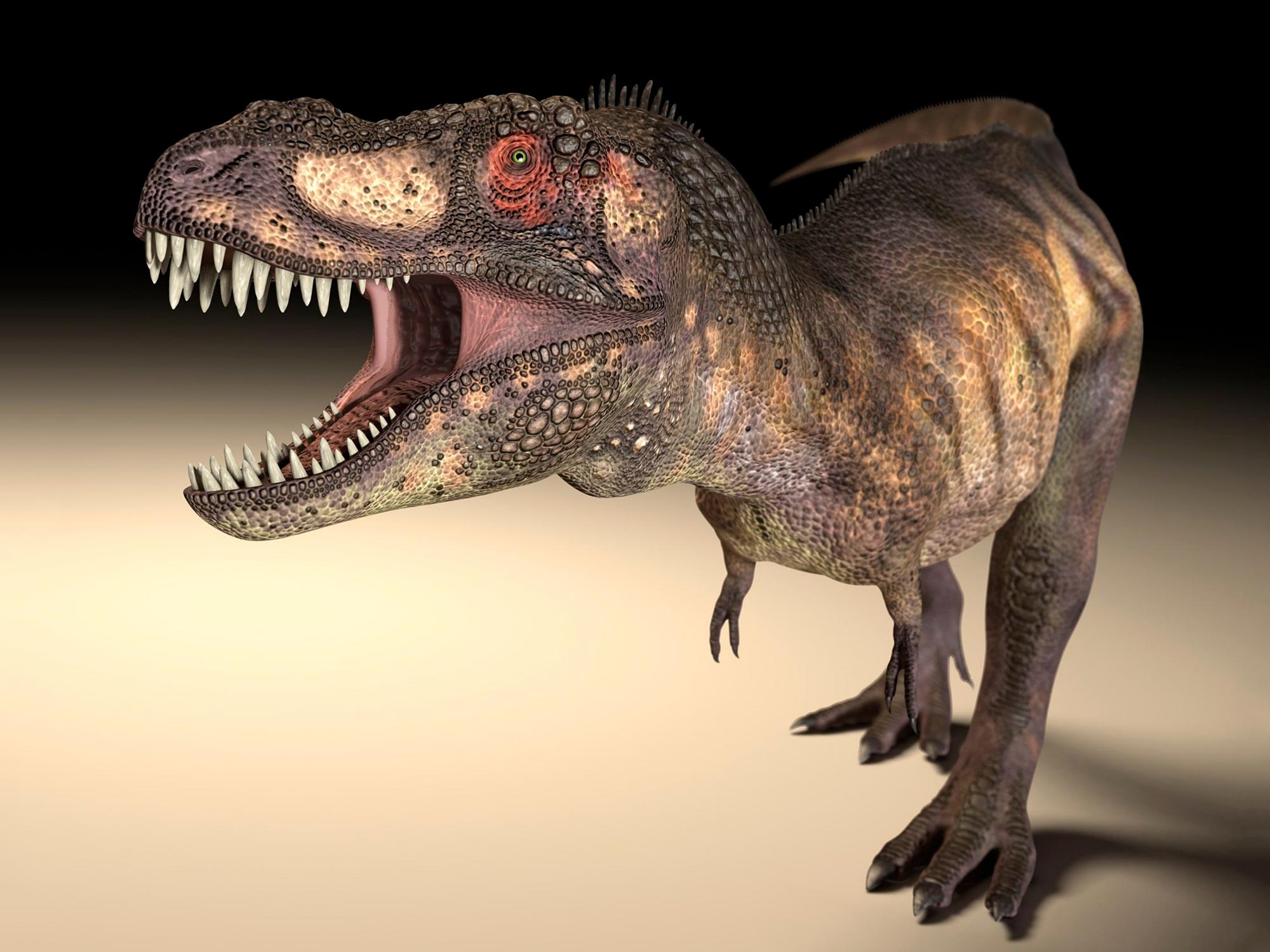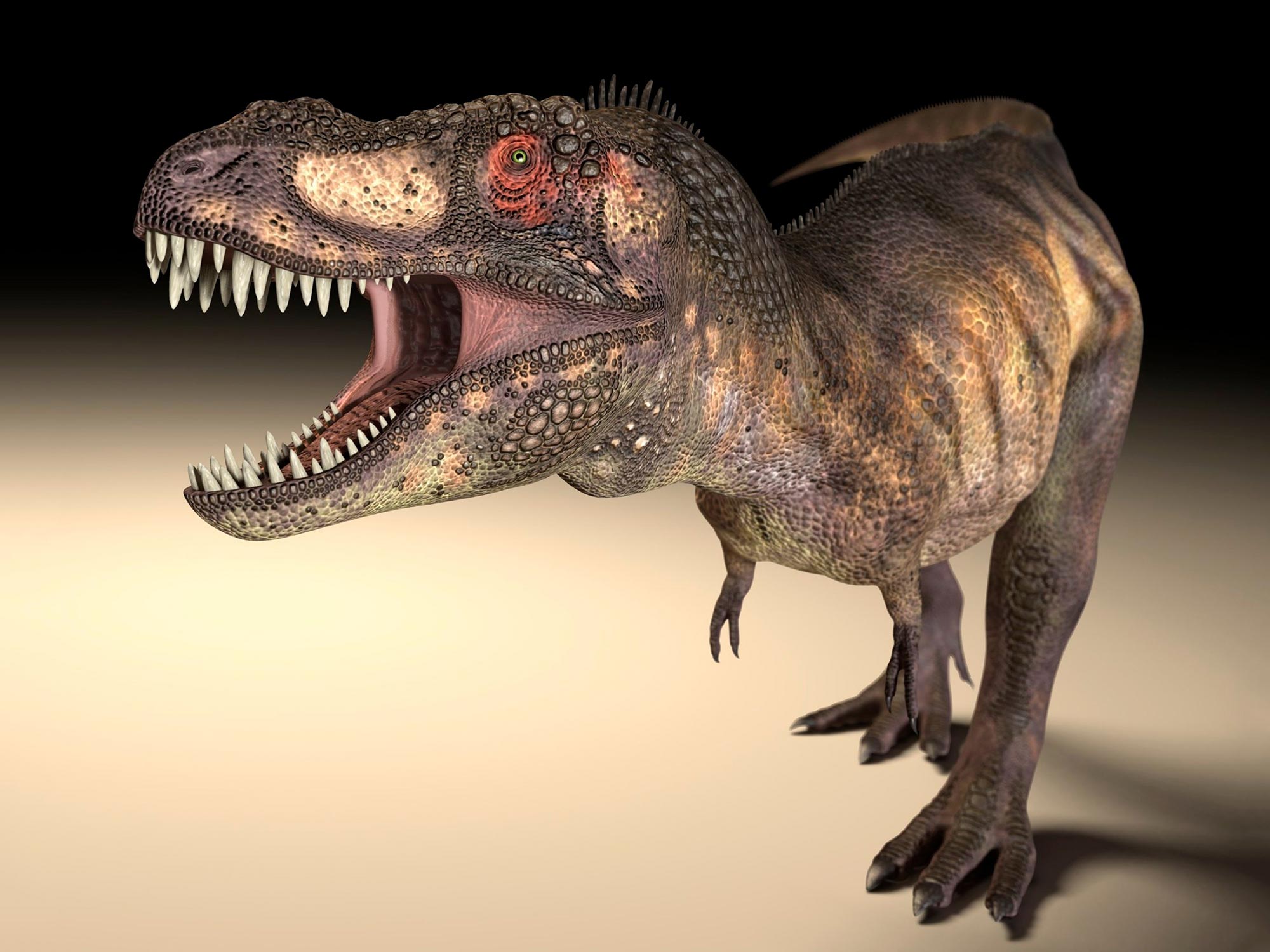Los grandes depredadores de dinosaurios, como el T. rex, desarrollaron diferentes formas de cavidades oculares para permitir mordidas más fuertes.

Una nueva investigación muestra que los grandes dinosaurios depredadores desarrollaron diferentes formas de cuencas oculares para manejar mejor las altas fuerzas de mordida.
Según una nueva investigación, los grandes depredadores de dinosaurios como Tiranosauro Rex, Se han desarrollado diferentes formas de cuencas oculares para manejar mejor las altas fuerzas de mordida.
Mientras que en muchos animales, incluida la mayoría de los dinosaurios, la cuenca del ojo es solo un orificio circular en el cráneo que alberga el globo ocular, esto es muy diferente en los grandes carnívoros.
Un nuevo estudio revela cómo las inusuales cuencas oculares elípticas u ovaladas que se encuentran en los cráneos de estos depredadores pueden haber evolucionado para ayudar al cráneo a absorber el impacto cuando atacaban a sus presas. Esta investigación, realizada por científicos de universidad de birminghamfue publicado hoy (11 de agosto de 2022) en Biología de la Comunicación.

Reconstrucción del cráneo y la vida de Tyrannosaurus rex con órbita y ojo originales (izquierda) y reconstrucción hipotética con órbita ocular circular y ojo agrandado (derecha). Crédito: Dra. Stephan Lautenschlager, Universidad de Birmingham
Dr. Stephan Lautenschlager, Profesor Titular de Paleobiología en[{” attribute=””>University of Birmingham and author of the new study, analyzed the shape of the eye sockets of ca. 500 different dinosaurs and related species.
“The results show that only some dinosaurs had eye sockets that were elliptical or keyhole-shaped,” said Dr. Stephan Lautenschlager. “However, all of those were large, carnivorous dinosaurs with skull lengths of 1 m or more.”

Computer simulations of hypothetical dinosaur skulls. Colors indicate skull stress. High stresses occur in the skull with a round eye socket (top), lower stresses in a skull with a keyhole-shaped eye socket (bottom). Credit: Dr. Stephan Lautenschlager, University of Birmingham
Dr. Lautenschlager tested what purpose these unusual eye socket shapes could have by using computer simulations and stress analysis.
The results demonstrated that a skull with a circular eye socket was more prone to high stresses during biting. However, if these were replaced with other eye socket shapes stresses were significantly reduced. This allowed top predators, including Tyrannosaurus rex, to evolve high bite forces without compromising skull stability.
The study also showed that most plant-eating species and juvenile individuals retained a circular eye socket. Only large carnivores adopted other morphologies, such as elliptical, keyhole-shaped, or figure-of-eight-shaped eye sockets.

Skulls of different dinosaurs showing variation in eye socket shape (stippled outline). Credit: Dr. Stephan Lautenschlager, University of Birmingham
Dr. Lautenschlager added: “In these species, just the upper part of the eye socket was actually occupied by the eyeball. This also led to a relative reduction of eye size compared with skull size.”
The researchers also investigated what would have happened if eye size had increased at the same rate as skull length. In such a case, the eyes of Tyrannosaurus rex would have been up to 30 cm (12 inches) in diameter and weighed nearly 20 kg (44 pounds). This is instead of an estimated 13 cm (5 inches) and 2 kg (4.4 pounds).
Reference: “Functional and ecomorphological evolution of orbit shape in mesozoic archosaurs is driven by body size and diet” by Stephan Lautenschlager, 11 August 2022, Communications Biology.
DOI: 10.1038/s42003-022-03706-0

“Creador malvado. Estudiante. Jugador apasionado. Nerd incondicional de las redes sociales. Adicto a la música”.





